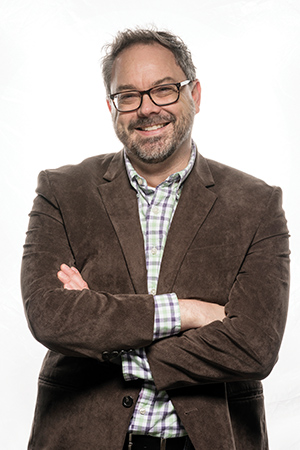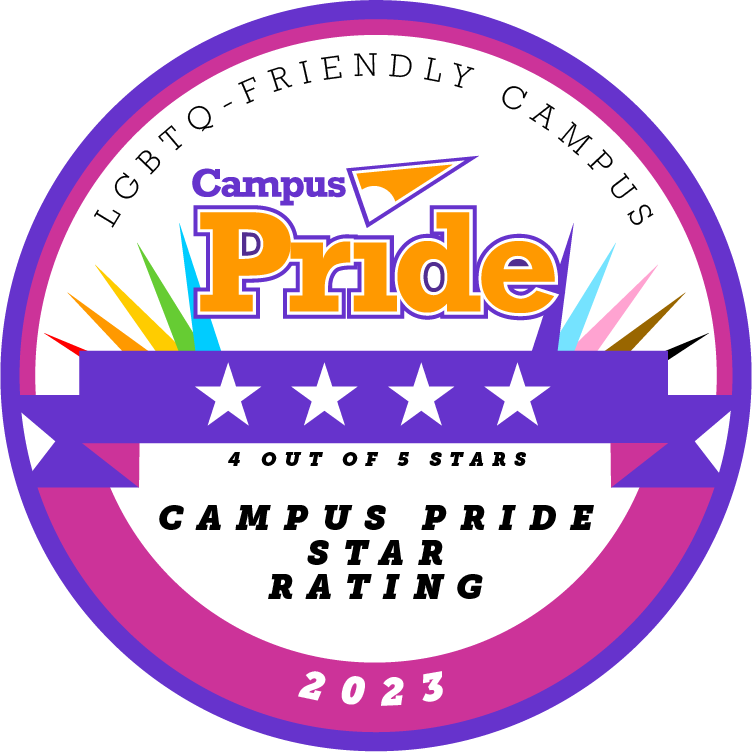William Cuthbertson

Hometown: Ogden, Utah
Role on campus: Undergraduate engagement librarian (an assistant professor)
Years on campus: 1 year in February 2018
Did you or do you have plans to continue your education beyond a four-year degree? I have a master’s, and frankly, that’s enough.
Why did you choose Chico? I was excited that Chico State is a Hispanic Serving Institution, and by the high percentage of first-gen students coming here. If you’re looking to make a difference, which I am, then this is the student population I see as being the future of academia.
What first sparked your interest in a college education? I loved reading from early on, so it was always assumed I’d go—that, and having high-achieving friends that I didn’t want to be shown up by. It’s funny how a little friendly peer pressure could turn out to be such a factor.
What were some barriers that prevented others in your family from completing a four-year degree? Primarily the military life, which for us meant moving constantly to new states, new cities, or sometimes just another part of the same base. You learn to be agile, but it isn’t easy to commit to long-term plans.
Who can you point to as a mentor or inspiration in your pursuit of a four-year degree and why? I have two friends from high school, Sean and Noel, who were both very instrumental in getting me going in college. Noel actually drove me to college that first day, for which I’m grateful, because I had no idea how I was going to get there otherwise. My brother was influential too—and he had just as hard of a path as I had, if not a little harder for having to go down it first. The fact that we both work in academia now says a lot, I think, about determination and where a simple love of reading can get you.
What does being first-gen mean to you? It means wanting to succeed but not always getting the “how” of it. It means learning the rules of college sometimes in the worst ways. (I like to tell my students about how I failed my first science class, botany, because I had no understanding of what a lab class was.) It means learning quickly how your experiences are very different from those of your peers, but also how sometimes that’s a great asset in the classroom: you can ask the questions no one else thinks of—or dares to ask—and getting that kind of direct interaction with your instructors is liberating, educationally.
What challenges do you struggle with or have you overcome as a result of being first-gen? There were a lot of secondary issues that made growing up a lot more about survival than making any future plans. Alcoholism, and the accompanying factors, were a huge issue in my family. Everyone else I knew seemed to have time to plan for their lives beyond high school, but I felt, even knowing I could make it, that we were living in a kind reactionary mode—waiting for things to normalize before being able to look ahead. I would add that having the experiences I’ve had—full-time work during college, having to drop out for lack of funds, transferring to a school that was more personal and a lot smaller than where I started—gives me a sense of accomplishment and a real way to communicate with students who I think are doing the same thing or feeling the same way. We can cut through the fancy talk about college and talk about what we need and want to do. That kind of directness, being able to make the obscure language of academia plain—that is an asset that first generation students have that is going to not just help them, but help them aid others in making that same climb to success.
What is your wildest ambition? I want to finish one of the novels I started writing when I was younger, but other than that, I feel I am useful to students and doing exactly what I want to do.
What message do you want to send other first-gen students? Not only can you do it, you can do it well. And chances are you already know a lot of the skills that are going to get you there. Be proud of the road you’ve had and the miles you’ve put on it. It’s your road. It’s your feet getting you there, and you’re meeting fantastic people along the way. But if anyone suggests you can’t do it, come and get me and we’ll go talk to them together.

